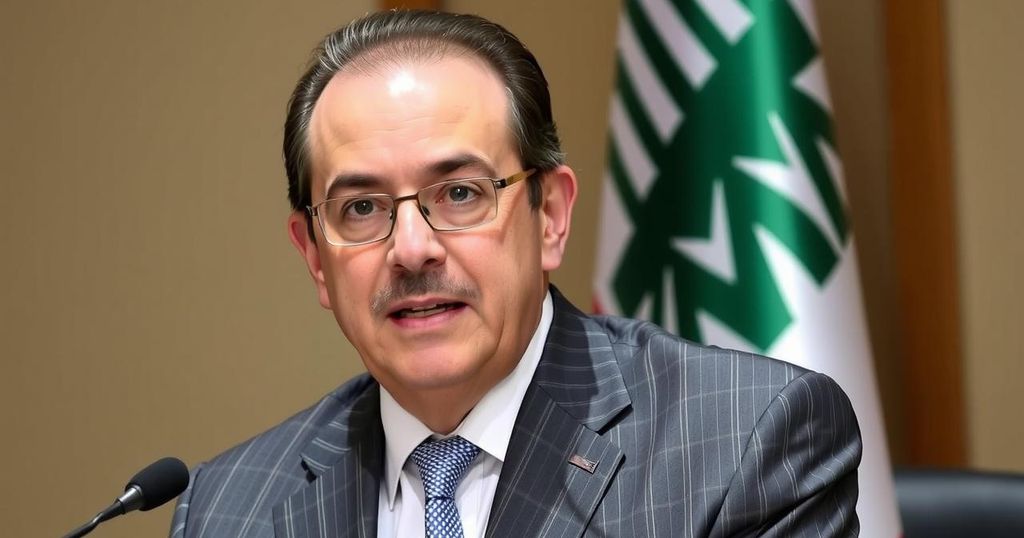Lebanon’s President Joseph Aoun appointed ICJ judge Nawaf Salam as Prime Minister, receiving broad support from lawmakers after two years of caretaker governance. Salam’s nomination reflects hopes for political reform and effective responses to economic crisis, amidst ongoing challenges related to armed faction influence and political division.
Lebanon’s President Joseph Aoun appointed Nawaf Salam, a judge at the International Court of Justice in The Hague, as the new Prime Minister, aiming to lead the nation out of its ongoing economic turmoil. This decision received majority endorsement from Lebanese lawmakers, with 84 members supporting Salam and nine favoring interim Prime Minister Najib Mikati. After more than two years of a caretaker administration, Aoun’s election concluded a prolonged vacancy. Formerly under a caretaker government, the nation hopes for swift government formation to address severe financial challenges and to commence necessary reforms pursuant to international donor conditions.
Aoun’s presidency marks a pivotal moment following the weakening of Hezbollah through recent conflicts, and he emphasized the need for an expeditious formation of the government. Independent lawmaker Firas Hamdan characterized Salam’s nomination as a solely Lebanese initiative, free from external influences, representing a collective desire for change. Salam is perceived as an impartial figure poised to implement urgent reforms, contrasting with Mikati, who critics argue represents entrenched corruption.
The newly appointed Prime Minister will face pressing tasks including the implementation of reforms to restore international financial support crucial for Lebanon’s recovery from its severe economic crisis. Moreover, Salam must address reconstruction efforts post-conflict and oversee adherence to the ceasefire agreement with Hezbollah. The political landscape remains complicated, as factions continue to express divergent views on Hezbollah’s role, with some advocating for a shift away from armed conflict and towards political engagement.
Salam’s selection was seen by some, including close allies of Hezbollah, as a potential alignment with U.S. interests, raising concerns about foreign influence in Lebanese politics. The process of forming a government may be protracted given the country’s historically deep political divisions, necessitating negotiations among various parties to achieve consensus. Thus, while the appointment is a significant step forward, the actual effective governance may take time.
The political landscape in Lebanon has been mired in crisis and dysfunction. For over two years, the country has lacked a functioning government, which has exacerbated its economic situation. The election of President Joseph Aoun recently marked a turning point, enabling the selection of a new Prime Minister following extensive political deadlock. Lebanon’s crises stem not only from internal governance failures but also from the influence of armed factions like Hezbollah, which have complicated political stability and reform efforts since the end of the civil war decades ago. Nawaf Salam’s appointment is a critical development, as it reflects both the aspirations for reform and the challenges that lie ahead.
The appointment of Nawaf Salam as Prime Minister by President Joseph Aoun represents a significant attempt to revitalize the Lebanese government amid unprecedented economic challenges. With a majority of lawmakers backing Salam, this change could herald a new chapter for the nation, moving away from the interim governance that has persisted for over two years. However, navigating the formation of a stable government and implementing essential reforms will be formidable tasks that require consensus among Lebanon’s deeply divided political factions.
Original Source: www.hindustantimes.com






